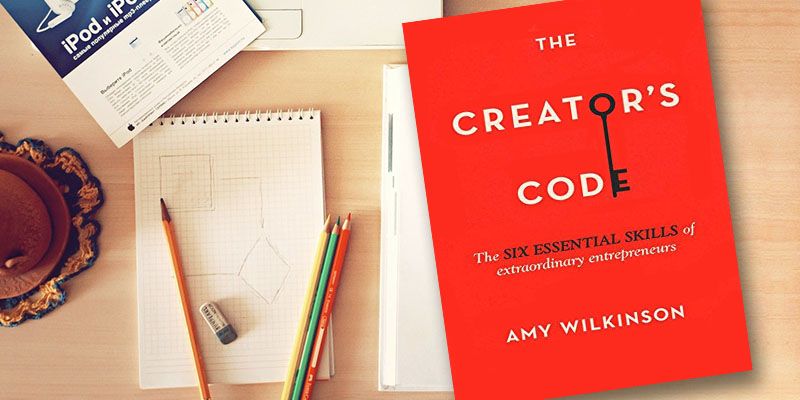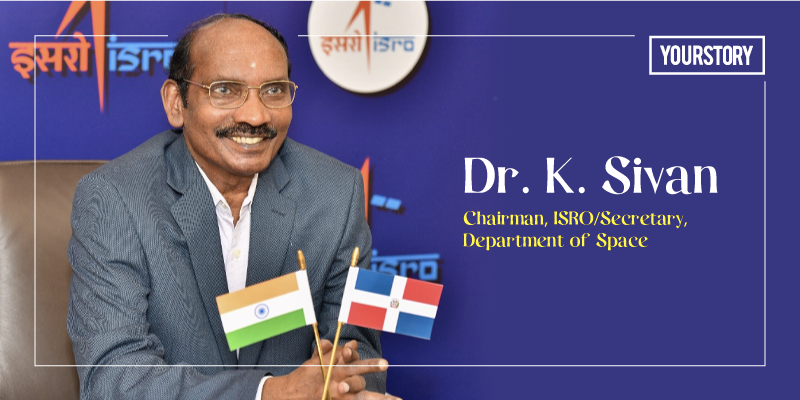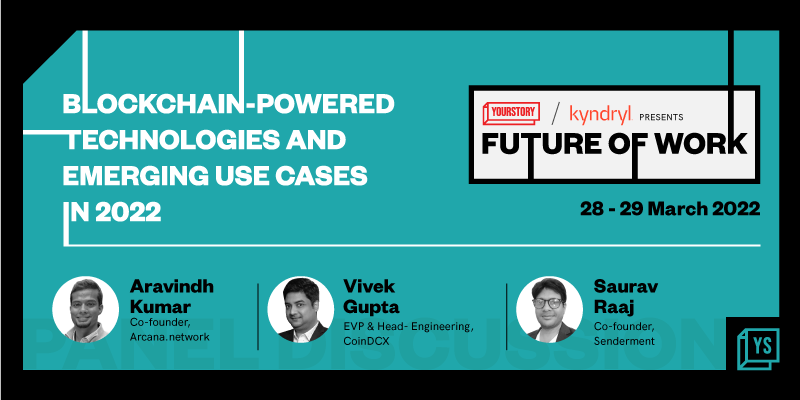The Creator's Code: 6 essential skills of extraordinary entrepreneurs
In her new book, ‘The Creator's Code: The Six Essential Skills of Extraordinary Entrepreneurs,’ Stanford lecturer Amy Wilkinson presents new insights into entrepreneurial success based on 200 interviews and extensive inter-disciplinary research. The interviews and success stories are drawn from companies like LinkedIn, Chipotle, eBay, Under Armour, Tesla Motors, SpaceX, Spanx, Airbnb, PayPal, Jetblue, Gilt Groupe, Theranos and Dropbox.

A little daring and discipline can go a long way, and entrepreneurship is accessible to everyone, Wilkinson begins. “Creators discover what ignites them, then fuel their efforts with a sense of mission,” she says; this does not necessarily call for an MBA or years of experience.
Her interviews are with entrepreneurs whose companies generate at least $100 million in annual revenue, or social enterprises that serve more than 10,000 people. The research was conducted over a period of five years.
Also see my reviews of the related books ‘Zero to One’ (Peter Thiel), ‘Startup Leadership’ (Derek Lidow) ‘Launch’ (Scott Duffy) and ‘Entrepreneurial StrengthsFinder’ (Jim Clifton and Sangeeta Bharadwaj Badal).
Wilkinson’s 229-page book is a good blend of research and storytelling and makes for a compelling read. Here are my takeaways on the six entrepreneurial success factors and case studies in the book.
1. Find the Gap
Spot opportunities that others don’t see, a vacuum that can be filled, a need which is unmet, a pattern that has not yet been detected, or a connection which has not been made. There are three kinds of entrepreneurs in this regard, driven by natural curiosity and alertness.
Sunbirds transplant ideas across divides via analogies, eg. Dean Kamen (aerospace gyroscopy for the Segway), Howard Shultz (Italian café model for Starbucks), George de Mestral (Velcro inspired by seed burrs sticking on dog fur) and Bob Langer (internal microchips for dispensing medication).
Architects are problem finders who ask ‘what if’ questions and design new approaches from the ground up, eg. Elon Musk (SpaceX) and Sara Blakely (Spanx and footless pantyhose). Integrators merge and connect disparate concepts, eg. Steve Ells (Chipotle’s ‘fast casual’ Mexican food chain) and Gilt Groupe (‘accessible luxury’).
2. Focus on the horizon
Focus on the future, and lead with your vision of what is possible. Set a fast pace, reflect on your moves but don’t indulge in too much nostalgia or obsess with the competition. Examples here include Hamdi Ulukaya, a Turkish immigrant who created the popular Chobani yogurt in the US; Joe Gebbia and Brian Chesky, founders of AirBnB; and Elizabeth Holmes, founder of clinical testing firm Theranos.
“Creators build toward where they are going, not where they are. They are never complacent. They move quickly to build the next thing,” says Wilkinson. “Creators scan the edges to identify fringe ideas that might move mainstream,” she adds. There is no time for regret; mistakes should be admitted and converted into lessons for the future.
3. OODA loop (observe, orient, decide, act)
Once the opportunity and mission have been set, it is time to learn to learn and adapt through iterative experiments, faster and smarter than the competition. Cultivate ‘situational awareness,’ interpret the market and customer, make rapid decisions, take decisive action, and then loop again with ‘flexible persistence.’
Examples include PayPal’s rapid pivots across offerings and business models. The team members carried on these principles in their own successive startups, such as LinkedIn, YouTube and Yammer. Having an organisational culture of debating, openness, respect and trust is critical here.
4. Fail wisely
Accept that mistakes will happen, but develop resilience via placing small bets and setting a ‘failure ratio.’ Learn to interpret setbacks as a new approach for success. “It’s neither fun nor comfortable, but failure is necessary,” cautions Wilkinson. “Failure provokes learning. Self-awareness is crucial,” she adds.
Creators need to be “brutally honest” with themselves about their failures. “Even the world’s greatest talents rarely succeed on their first attempt,” says Wilkinson; this applies to entrepreneurs as well as artists and musicians. Success calls for having a “growth mindset” of expanding outside one’s comfort zone or limitations by gathering new skills and allies. “The biggest failure of all would be refusing to try,” Wilkinson explains.
Examples here include Opower (home energy reports to increase conservation awareness), Google (70-20-10 formula for management focus on core, adjacent and new interests), NetFlix (backing away from a tweak to its DVD business model) and David Neeleman (moving on from JetBlue to Azul).
Also see my reviews of the books ‘The Wisdom of Failure’ by Laurence Weinzimmer and Jim McConoughey and ‘Fail Better: Design Smart Mistakes and Succeed Sooner’ by Anjali Sastry and Kara Penn.
5. Network minds
Use online and offline forums to tap cognitive diversity. Design effective shared spaces, use flash team approaches and gamify internal competition. “Creators believe everyone has something to offer,” says Wilkinson. Diversity helps becoming alert to new information, questioning one’s assumptions, and becoming more attuned to problem solving approaches.
Examples here include Jawbone (cross-disciplinary collaboration and ethnographic research for design of wearables), Segway (creative office space design), INSTEDD (flash teams for disaster management), Threadless (e-commerce portal with a diverse community of designers) and Broadway musicals (mix of experienced experts and fresh talent).
6. Gifting
Unleash generosity and strength in your network by being generous yourself. “Cooperation is contagious,” says Wilkinson. Generosity begets generosity and sparks collaboration; this does not have to be altruistic, a small gift by a founder can be good enough in the spirit of cooperation.
Examples here include LinkedIn founder Reid Hoffman, who has ‘gift guide’ principles to decide whom to give to, how much to give, and how to interact. P&G wants to be seen as a ‘gracious partner and fair competitor’ and passes on technologies to its competitors if they do not fit into its current plans. “Generosity is also a skill,” explains Wilkinson.
When all these six skills come together, magic happens: customers become evangelists, employees turn into loyalists and investors back the company beyond short-term expectations, says Wilkinson. The book is also packed with other humorous definitions, such as ‘Ramen profitability’ (when you have earned enough to pay rent and eat Top Ramen noodles!).
The book has a number of useful and inspiring quotes, and it would be good to end this review with some of them:
“You have to see failure as the beginning and the middle, but never entertain it as the end.” – Jessica Herrin, Stella&Dot
“Paypal was quite an extreme learning experience.” – Peter Thiel, Palantir
“You have to get good at failing.” – Dean Kamen, Segway
“The ability to learn faster than your competitor may be the only sustainable competitive advantage.” – Arie de Geus
“Try again. Fail again. Fail better.” – Samuel Beckett
“Discomfort serves a purpose.” - Katherine Phillips, Columbia Business School
“Creativity flows like music.” – George Kembel, Stanford d.School
“Running a startup on any given day, you’re sort of yo-yoing between euphoria and terror and getting used to it.” – Drew Houston, DropBox
About the author:
Amy Wilkinson (Twitter: @AmyWilkinson) is an entrepreneur and lecturer at the Stanford Graduate School of Business. Her career spans leadership roles with McKinsey & Company and JP Morgan and as founder of an export company. Wilkinson has served as a White House Fellow in the Office of the US Trade Representative and as a senior fellow at the Harvard Kennedy School.











